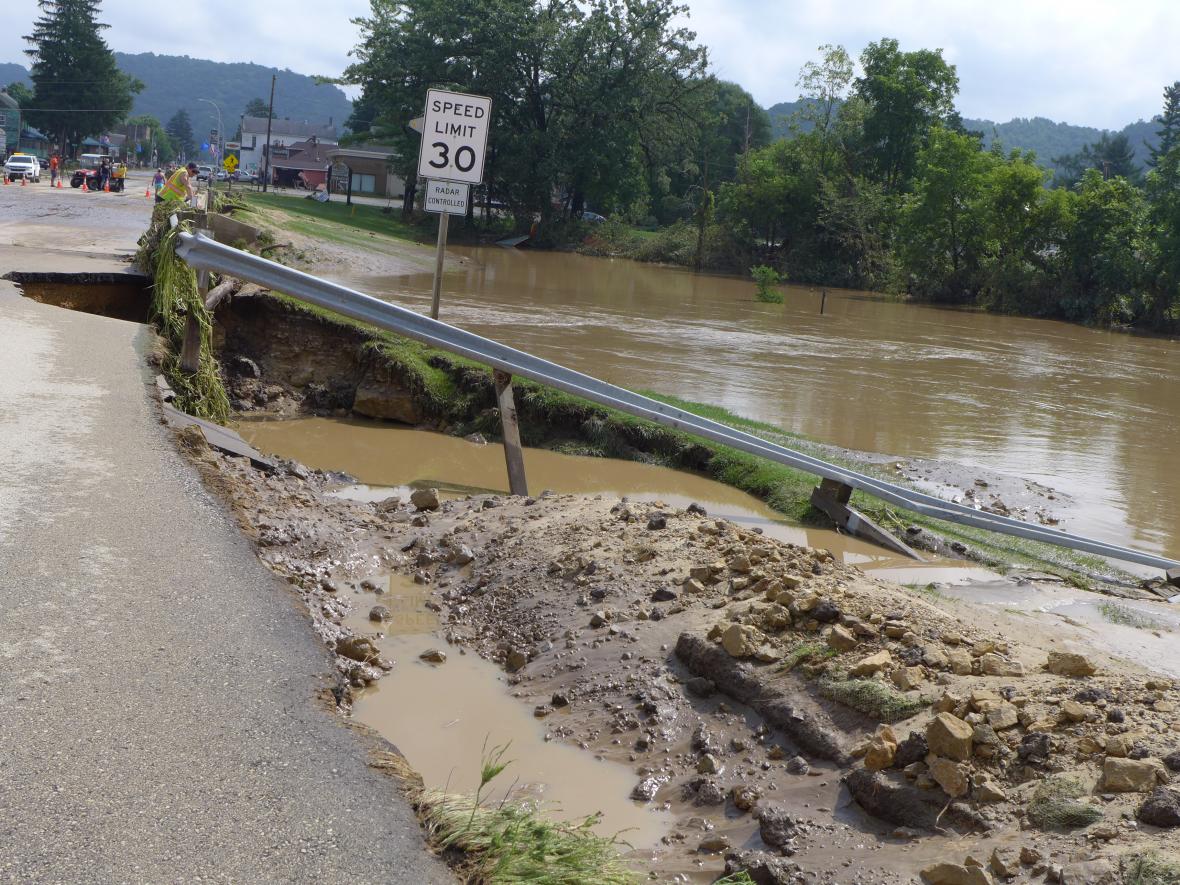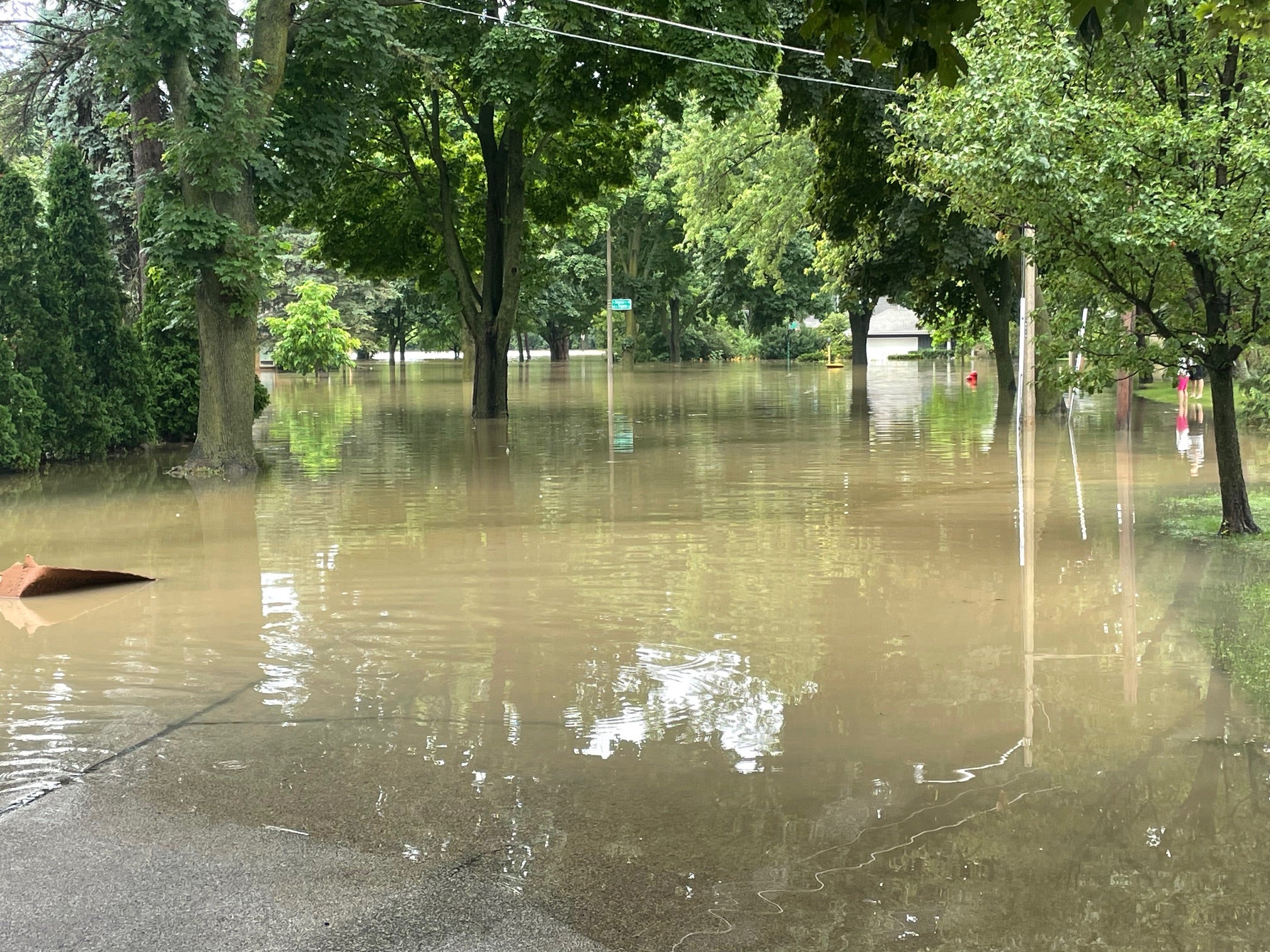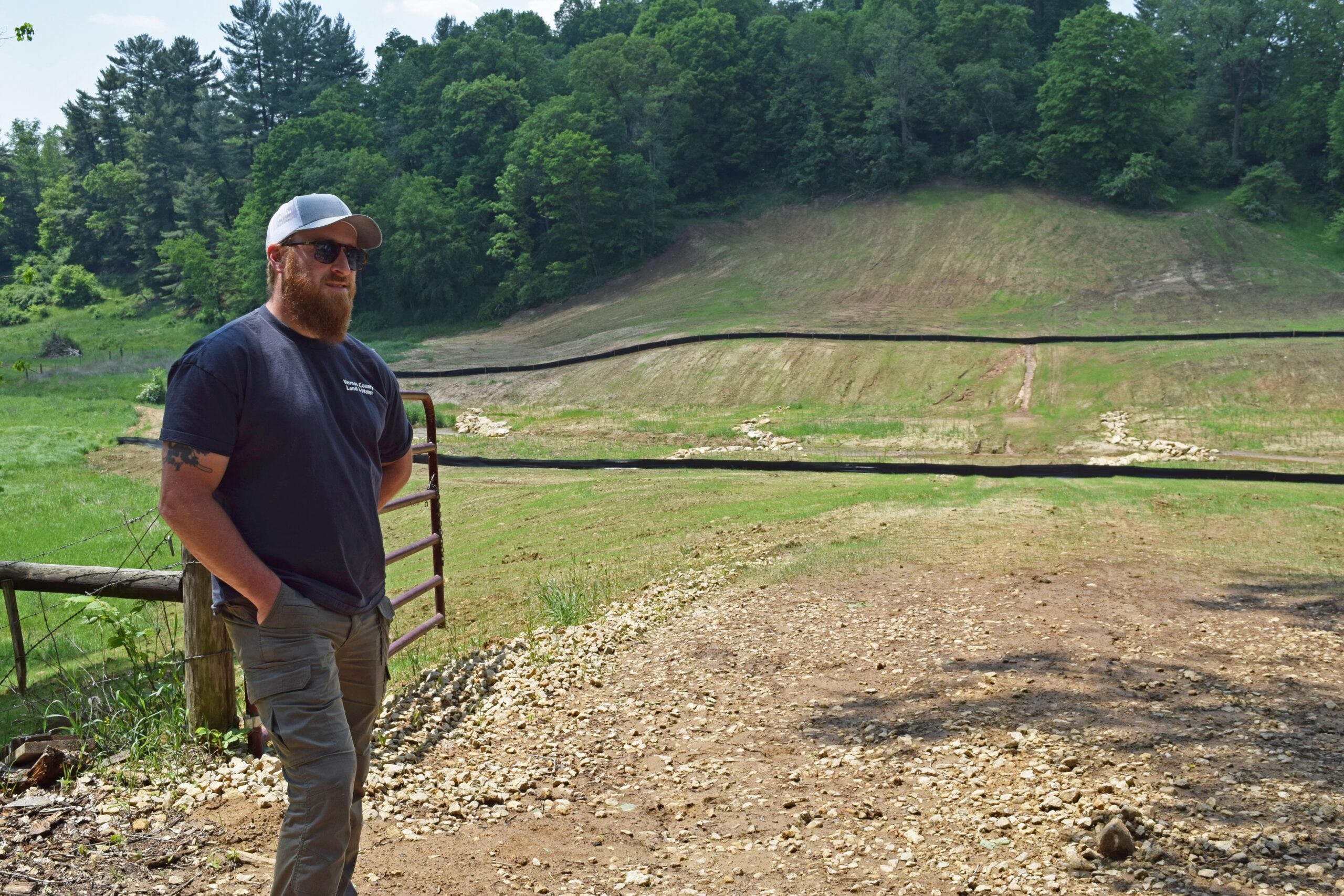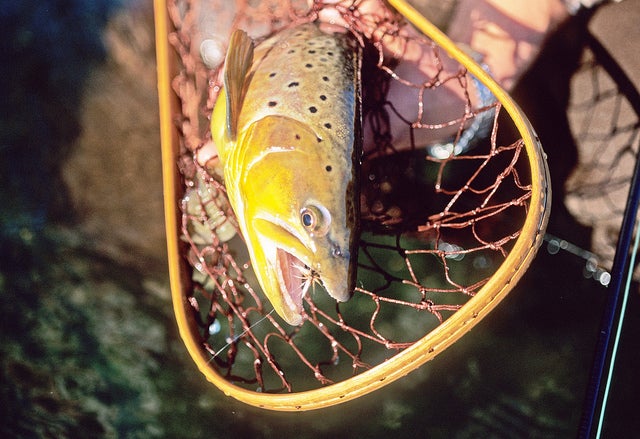A newly formed task force in Monroe County will focus immediately on warning people who live in watersheds that have faced repeated flooding in the last 12 years. But the group will also take a long-range approach to dealing with climate change.
Monroe County, just east of La Crosse, became the fourth county government in Wisconsin to create a plan to deal with climate change and is the most rural county so far to formally address the issue.
“We need to get a pulse on what’s going on, and we need to warn the public,” said Bob Micheel, Monroe County land conservation director. “We can do that with some weather stations in some of these sensitive watersheds. The Kickapoo watershed and the La Crosse watershed are two areas that are constantly getting hammered and losing roads. We’re just fortunate so far that no one has lost life over these events,”
News with a little more humanity
WPR’s “Wisconsin Today” newsletter keeps you connected to the state you love without feeling overwhelmed. No paywall. No agenda. No corporate filter.
Micheel said since 2007, southeastern Minnesota and southwestern Wisconsin have had almost 20 heavy rain events that have caused major flooding. The most recent large rain event in August 2018 affected dams built to sustain 100-year flood events in Monroe and Vernon counties that damaged homes, roads and other infrastructure.
“We have to respond. We can’t just sit back and take it and do the same thing over and over expecting the same outcome. That’s why we developed the climate change task force, and we’re going ahead with our objectives,” Micheel said.
Developing a weather warning system is just the first of a multifaceted plan that could eventually impact things like water quality, land-use and agricultural practices in Monroe County.
“Our highway department is feeling all the extra work they have to do on top of their normal day-to-day work. We’re not getting 100 percent reimbursement for all of those expenses that we do have from these events,” said Monroe County Administrator Tina Osterberg. “Our zoning office is feeling the pinch, they’ve been working with a lot of our homeowners, trying to help them out to find ways to mitigate their future cost and maybe even help with our cost if some of the homes can be moved out of those flooding areas.”
Earlier this month, Gov. Tony Evers created a task force to address climate change in the state of Wisconsin, something Osterberg said could complement Monroe County’s work.
“I look at it as an opportunity for additional funding to help us be able to follow through with some of our plans. Being able to get funding to go toward additional weather stations in our water basins, to be able to warn the individuals out there. It seems like a lot of these events are happening at night in the dark, so people don’t see it coming,” she said.
Monroe County is the source of five different watersheds that feed into Vernon, La Crosse and Juneau counties. Micheel said the county has applied for a federal grant to study one of those watersheds, the Coon Creek watershed, which was the first–ever land conservation project in the United States dating back to the 1930s.
There were 14 dams built as part of that project, many of which were damaged in the August 2018 storms.
“We’re going to look at the big picture. The structures were a solution for a long time. Do we need to go back to that when it’s going to cost us millions of dollars per structure and we have three of them to replace? Or are there other things we can do in the landscape to change that course of action when it comes to flooding?” Micheel said.
Other task force members see the group’s role as one of educating Monroe County residents about the impact of climate change.
“When you hear the words climate change, with some that’s kind of a hot button issue,” said Ron Luethe, Ridgeville town supervisor and task force member. “It‘s been politicized and weaponized by all sides. It affects the local people. I think the people in our community are recognizing that there is something going on. What they‘re looking for is, ‘Okay, what do we do about it?’ I think that‘s the big question we can address here.”
Wisconsin Public Radio, © Copyright 2025, Board of Regents of the University of Wisconsin System and Wisconsin Educational Communications Board.







